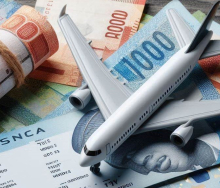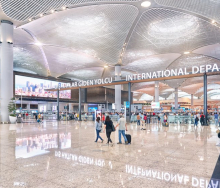Tech adoption in the travel and tourism space is receiving increasing attention, and nowhere was this more evident than during the Tech & Tourism Conference, held on February 22, at the Langhams Executive Conferencing venue in Fourways, Sandton.
The event was dedicated to exploring the tools that are giving the trade the ability to up the ante of their operation in a multitude of ways. With wide participation by industry players, discussions centred around various use cases for the tech that is giving travel agencies, ITCs, TMCs and tour operators an edge above their competitors.
Tasneem Motara, the Gauteng MEC for Economic Development, remarked in her keynote address how untapped opportunity lies at the intersection of technology and tourism.
“In today’s digital age, technology has become an integral part of our lives, revolutionising the way we communicate, work, and even travel. It is vital for us to recognise the immense potential that lies within this space and seize it to propel our tourism industry forward,” she said.
How to unlock the potential of that technology is the key.
While the potency of applications for technology in tourism cannot be disputed, a key message driven by many panellists is that new systems and software shouldn’t be implemented simply because it appears to be what everyone else is doing. Rather, said Natalia Rosa, CEO of travel marketing company Big Ambitions, we need to come to grips with our workflow processes first.
“Unless you understand the tasks of your team, it’s dumb to even think about technology.”
This sentiment was reiterated in a later session during which Nombulelo Guliwe, Acting CEO of South African Tourism said that when considering what technology to implement, understanding the “why” behind the reasons for its use will lead to more successful outcomes.
Big Data, big opportunity
Harnessing the power of data is an ideal starting point for businessowners who want to capitalise on existing digital assets.
Velma Corcoran, Regional Lead for the Middle East and Africa at Airbnb, revealed that it was Big Data from the aggregation of accommodation rentals which provided the impetus for the launch of Italy’s year-long remote working visa.
At a time when the Italian government was mulling the launch of the visa, Airbnb’s data across millions of homes across hundreds of countries revealed that the fastest growing segment was stays longer than 28 days. Based on this information, the government successfully launched its remote working visa.
The key, said Corcoran, was categorising this data in a way that useful insights could be derived.
Big Data can also be used to identify audiences that are more receptive to promotional or product news, which is what Eco Africa Digital did for one of its clients who wanted to drive direct bookings for its hotel in Stellenbosch.
After analysing the hotel’s database, Eco Africa Digital was able to structure a series of social media campaigns with targeting that matched the profile of those who either have or may choose to stay at the hotel in the future. Using an enticing campaign with attractive visuals and a discount to encourage email sign-ups, the hotel saw an open rate of 73% on its mailers.
As Lizanne du Plessis, CEO of Eco Africa Digital, explained, “The data is out there, but it’s a big ocean that needs interpretation.”
















